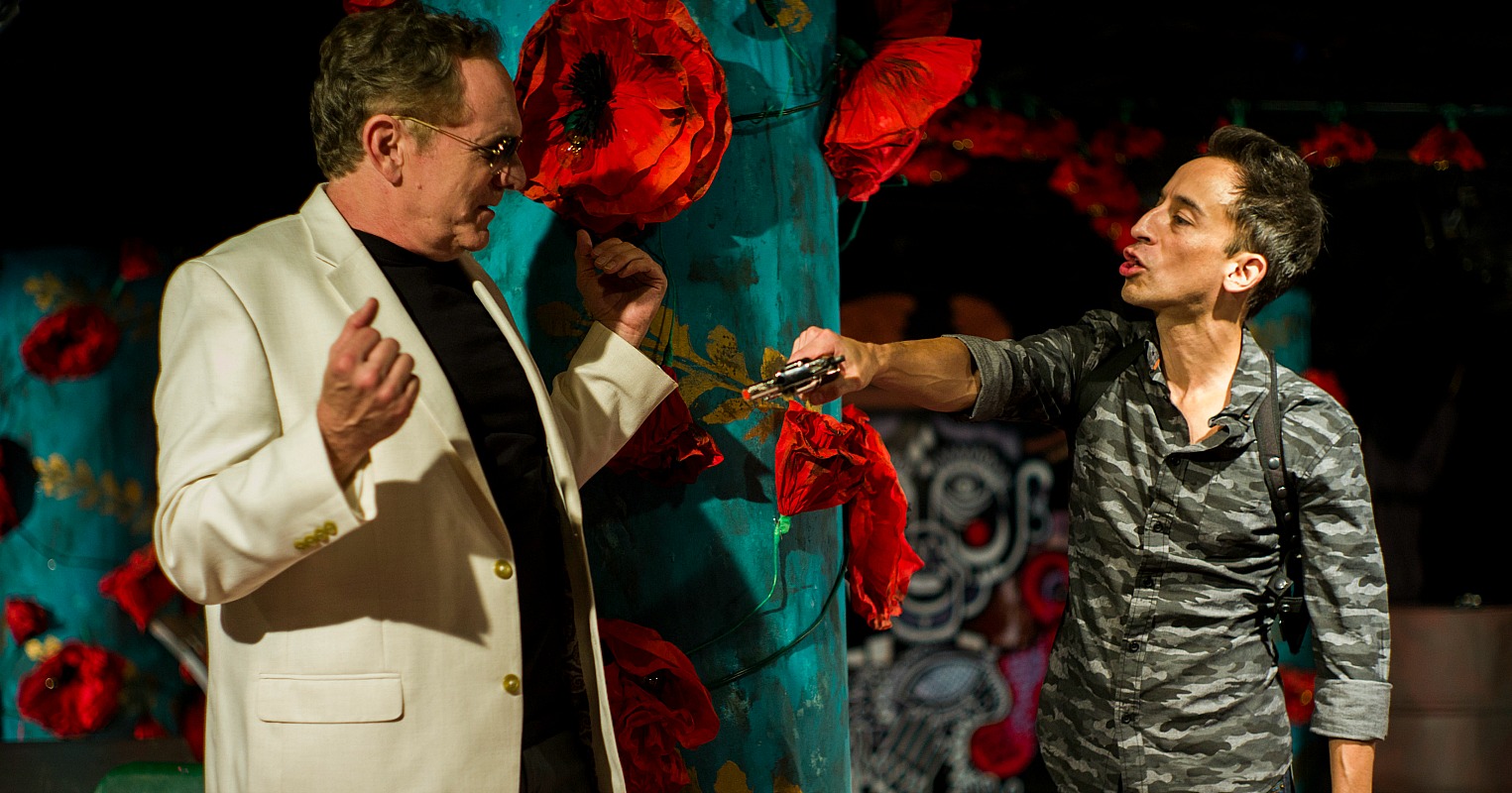‘Bravest Woman In Mexico’ Inspires Dreamlike Drama, Launching A Trilogy At The Undermain
ArtandSeek.net September 16, 2016 22Five years ago, a twenty-year-old woman made international headlines by becoming the police chief of a small Mexican town caught up the cartel drug wars. Her story has inspired a trilogy of dramas that’ll get their area premiere from the Undermain Theatre — the first trilogy the company has ever presented. KERA’s Jerome Weeks sat down with playwright Matthew Paul Olmos to talk about the first of his trilogy, called ‘so go the ghosts of mexico.”
Your play is based on a real person, Marisol Valles Garcia. Tell us about her.
So it’s a very fascinating story about this woman who puts herself in danger, and her real point was to take the firearms away from the police officers, hire more female officers and to say to the cartels, ‘We’re not trying to be a force against you. We’re trying to just have peacefulness and to have the community really focus on children going to school and families staying close together.”
And then not that long after, she ends up being contacted by the cartels and they threaten her and she flees to the US to try to get asylum — where she’s at now.
Other than her courage in doing this, what fascinated you about this story?
There’s a famous line by Joan Didion, where she said that in Latin America, magic realism isn’t magic at all, it’s just realism. And I wonder about your play, the story alone, the bare bones of it are fantastic, but you make it even more so.

Bruce DuBose (left) as an American drug dealer and Blake Hackler (right) as a local cartel underling in ‘so go the ghosts of Mexico’ at the Undermain. Photos: Katherine Owens.
So the play is dream-like and violently strange and funny. There’s a headless man, there’s radio music that comes from nowhere and can’t be stopped. But in addition to all this, you have stage directions, like at one point you write, ‘The music is now in the sweat of Mari,’ the main character. What do you hope theater companies will do with such stage directions?
Particularly this one but a number of your plays directly address the entire culture of machismo.
But yeah, it is pretty relevant to all of my work. But the second play in the cycle is actually about the cartels themselves. In my play, however, they’re played by women. And they actually break out into song often. And the reason for doing that is that hearing sort of vile things coming out of a woman’s mouth, lets you see the ridiculousness of it, whereas if it was just a bunch of men, it would seem to be just be a typical, oh, like I get it, this is just some sort of —
– it’s another Tarantino film.
Is that why mothers appear in your plays?










